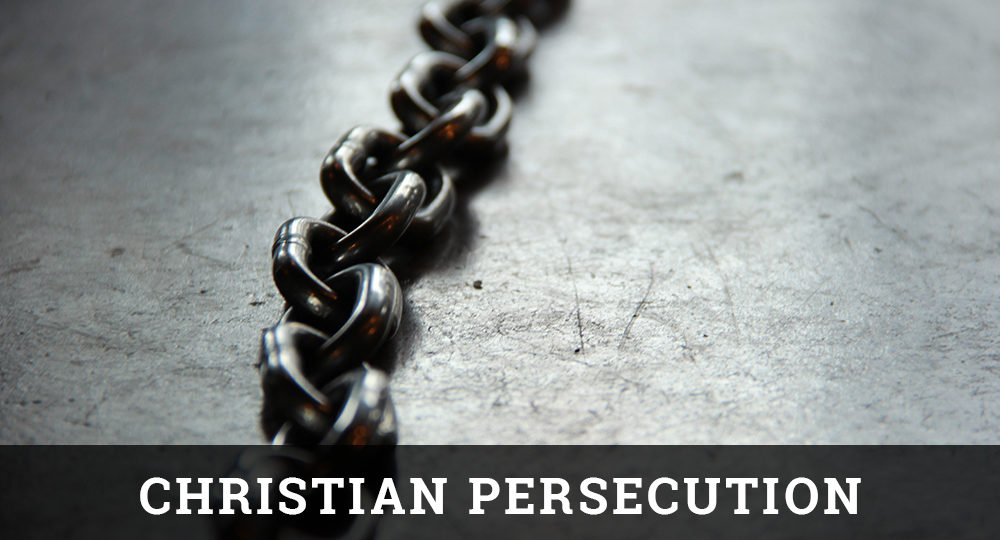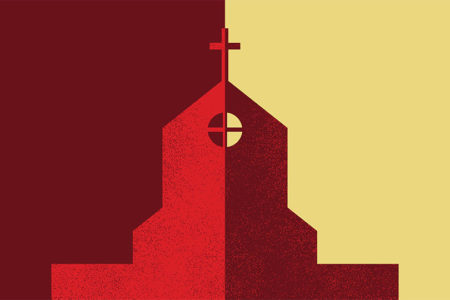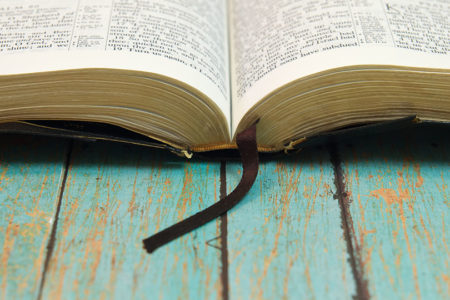They Cry In Silence Mar/Apr 2004
Since the end of the first Gulf War, the Christian population of Iraq has dropped from nearly two million to about 800,000.
These startling figures reported by senior reporter George Thomas of CBN News reveal the very real problems confronting the Christians of postwar Iraq. A Christian leader surveying the situation in his country declared, “We are afraid for the future.”
The Christian exodus out of Iraq is reminiscent of the departure of more than 120,000 Jewish people from there in the wake of the Israeli War of Independence in 1948. The phenomenon is also consistent with the radical Muslim promise to drive Christians out of the Islamic sphere in the Middle East.
November 2003 was a particularly bad month for Iraqi believers. A key Christian judge was murdered in Mosul; bombs were discovered in two Christian schools, one in Mosul and the other in Baghdad; and many Christian students and families received word to convert to Islam or else.
Then, reported Thomas, in late November many Christian families throughout Iraq received a threatening letter from the country’s main Shia group. It warned Christians that if they didn’t convert to Islam, they would be raped, kidnapped, tortured, or killed.
Thomas said radical Islam is spreading across Iraq, and it has the Christian community very much on edge. An Iraqi woman commented, “One day when I was returning home on the bus, a group of Muslim men approached me and ordered me to cover my head. They told me that if I didn’t put on a veil, they would slaughter me. Can you imagine this? I am a Christian and we don’t believe in wearing the veil.”
What the Christians who remain in Iraq fear most is the growing Shiite influence. One Christian leader, wrote Thomas, begged, “Please protect us from the Shiite Muslims. They are very dangerous, they will kill us Christians. We don’t want them in the new Iraqi government.”
At the moment, his plea appears to be in vain. Thomas reported that Iraqi experts believe the Shiites, who constitute about 60 percent of the Iraqi population, will dominate the interim government this year.
Consequently, rather than becoming a functioning democracy, Iraq is well on its way to becoming an Islamic state devoid of all religious freedom. Should this be the case, it will embrace Sharia, a harsh form of Islamic law. As the basis of the new constitution, Sharia would be imposed on all Iraqis, regardless of their religion.
Wrote Thomas, “Dr. Noah Feldman, a close advisor to Paul Bremer, the American administrator in Baghdad, recently told a British newspaper…’The end constitutional product is very likely to make many people in the U.S. government unhappy. It’s not going to look the way people imagined it looking. Any democratically elected Iraqi government is unlikely to be secular, and unlikely to be pro-Israel. And frankly, moderately unlikely to be pro-American.’
“This is music to the ears of Sheikh Hadi Hussein Al-Ghazragi. He heads a prominent Shiite fundamentalist group that’s gaining support across Iraq. According to the Sheikh, ‘The Islamic law must be the foundation of this country and constitution. All the citizens, including Christians, Jews and others who belong to different religions, must follow the strict rules of Islam.’ ”
In spite of imminent danger, several Iraqi Christians are boldly but secretly evangelizing in the streets. CBN said Arabic versions of the Bible “are being highly sought after.”
One Christian commented, “My prayer is that the church will expand the walls of the church….We know that sharing this message is incredibly difficult, but this is what we believe in and as long as we have Christ with us, this is the day of salvation. This is the day. . .God is going to touch the people of Iraq.”
Today, wrote Thomas, “Christians in Iraq are suspended between hope and fear. Hope, that with the fall of Saddam Hussein, they will gain greater religious freedom. But also fear, because they are nervous about what a new Iraqi regime would mean.”
We have a mandate to pray for and reach out to our brethren in Iraq. They face a long and precarious future. As we survey those uncertainties, we are assured that He who neither slumbers nor sleeps watches over His own.







